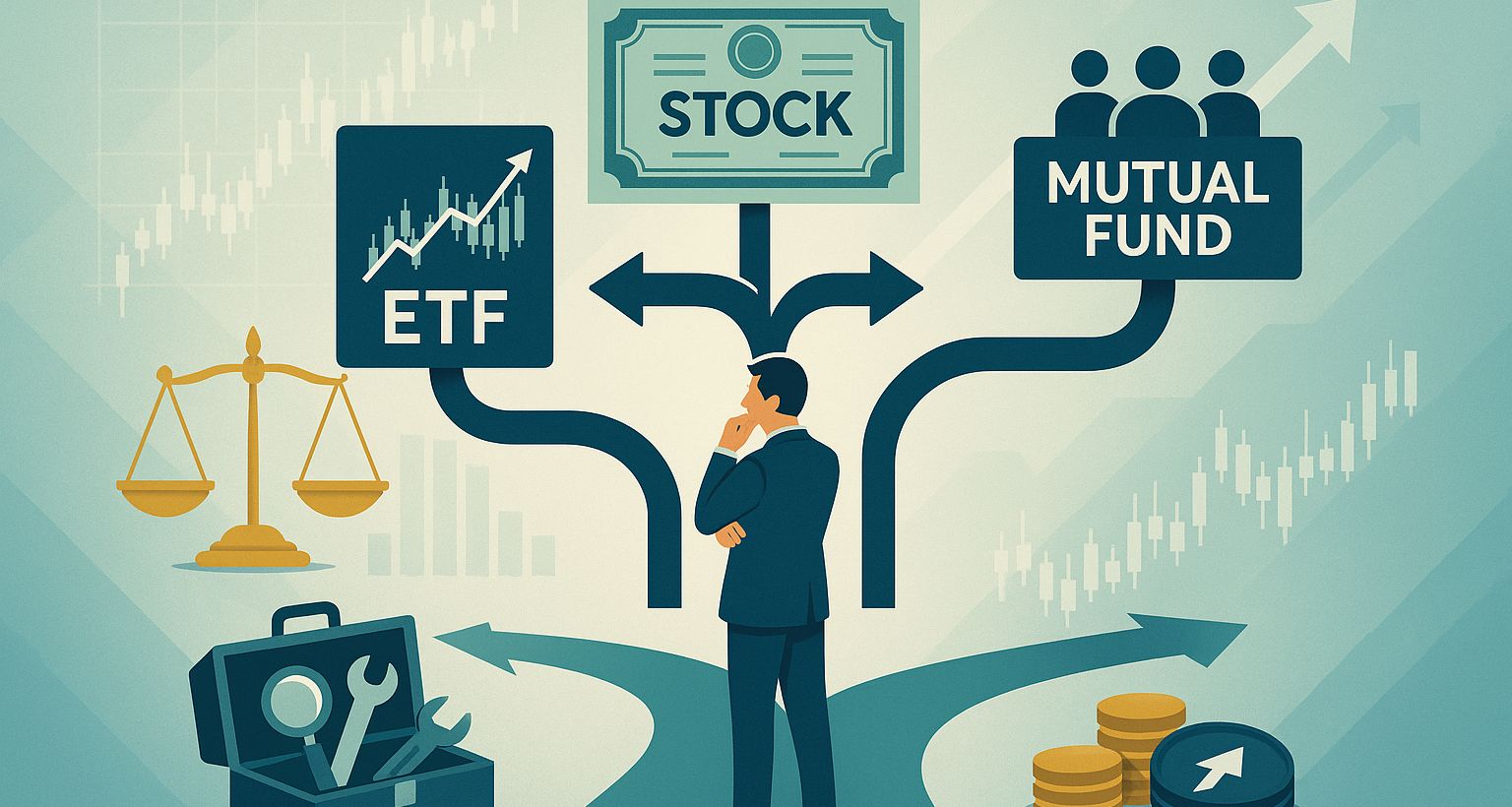- ETF UNO
- Posts
- 📊When ETFs Aren't the Answer: A Smart Investor's Guide
📊When ETFs Aren't the Answer: A Smart Investor's Guide
⚙️ETF101 Series: Know when to reach for different tools

Welcome back to our ETF101 series, fellow investors! Today, we're taking a moment to address an important question: When should we avoid using ETFs as our primary investment vehicle?
While we still view ETFs as valuable tools for most portfolios, it's essential to recognise that they aren't a one-size-fits-all solution. In certain situations, alternative options, such as individual stocks, mutual funds, or bonds, may better meet your needs.
A Private Circle for High-Net-Worth Peers
Long Angle is a private, vetted community for HNW entrepreneurs and executives. No membership fees. What’s inside:
Self-made professionals, 30-55 years old, $5M-$100M net worth
Confidential discussions, peer advisory groups, live meetups
Institutional-grade investments, $100M+ invested annually
🚧When ETFs Might Not Be Your Best Friend
Think of ETFs as the Swiss Army knife of investing—versatile and useful for many situations. However, there are times when you may need a specialised tool for a specific task. Today, we will explore those scenarios where selecting a different investment option might be the better choice.
🎯When You Need Laser-Sharp Precision in Stock Selection: Imagine this: after thorough research, you believe Tesla will transform transportation, energy storage, and solar power. You want to invest directly in this vision, but an ETF with Tesla and over 100 other companies won't meet your needs. While ETFs reduce volatility by spreading risk, they also dilute the potential impact of standout companies. If you're confident in certain stocks, investing directly allows your portfolio to reflect your research without being diminished by less exciting holdings.

Your Tesla Conviction? ETFs Dilute Its Revolution
💰When Cost Considerations Point Elsewhere: While ETFs are usually known for low fees, this isn't always true, especially for niche segments where some can have expense ratios of 0.75% or higher. In these cases, certain mutual funds or commission-free stock purchases might be more cost-effective. For smaller portfolios, these fees can add up.
🧾When Tax Timing Is Critical: ETFs provide good tax efficiency but limit your control over when you realise gains and losses. In contrast, owning individual stocks allows for precise tax strategies, such as tax-loss harvesting, enabling you to sell specific shares to optimise your tax situation. For high-income investors, the ability to time capital gains and losses can be more valuable than the diversification an ETF offers, especially during year-end tax planning.
🌱When You're Building a Micro-Portfolio: If you're starting with a small investment, individual stocks may be better than ETFs, especially with limited capital. Many brokers offer fractional shares, allowing you to invest as little as $1 in high-priced stocks like Berkshire Hathaway or Google. This flexibility lets you invest exactly what you want. Additionally, owning individual stocks helps new investors learn by following earnings and understanding business models.
🚫When You Want to Avoid Specific Holdings: ETFs offer a bundled package, meaning you receive all the assets within, even those you may not want. For instance, you might support renewable energy but find that a clean energy ETF includes companies whose practices you disagree with. Individual stock selection enables you to invest according to your values, allowing you to exclude companies you prefer not to include, unlike ETFs, which require you to accept all holdings in the fund.
🎓When You're Implementing Complex Strategies: Advanced investment strategies, such as pairs trading, covered call writing, or dividend capture strategies, often require individual stock positions. These strategies depend on the specific characteristics and timing of individual securities, which ETFs can't accommodate. If you're pursuing sophisticated options strategies or want to write covered calls for additional income, you'll need individual stock positions to serve as the underlying assets.

Advanced Strategies may Demand Individual Stocks
⚖️The Balanced Perspective
Recognising when not to use ETFs doesn’t mean you should abandon them. Successful investors often take a hybrid approach, using ETFs for core, diversified exposure while investing in individual stocks for specific opportunities. Start with broad market ETFs as the foundation of your portfolio, making up about 70-80%, and add individual stocks in sectors where you have expertise. This core and satellite strategy allows you to benefit from ETF diversification and low costs while targeting specific investments.

Hybrid Investing: Core ETFs + Targeted Stocks
Additionally, ETFs are evolving, with new active management and sector-focused options becoming available, which can also serve as effective complements to your strategy.
💡When Other Investments Make More Sense
As we conclude our discussion on when ETFs may not be the best choice, let's review the key points. While ETFs are valuable investment tools, they are not suitable for every situation.
Consider alternatives to ETFs when you need precise stock selection, cost-effective options, critical tax timing, small portfolio building, avoidance of specific holdings, or complex strategies. A sophisticated investor chooses the right tool for each task, whether that's an ETF, an individual stock, or a combination of both.

Enjoy the weekend readings!
We hope you've enjoyed this exploration of our ETF101 series. Knowing when not to use ETFs enhances your investment strategy and helps you recognise their true value. If you're ready to learn more about intelligent ETF investing, join the ETF UNO community for insights and strategies. Whether you're building an all-ETF portfolio or using ETFs within a broader approach, our community provides the support you need to make informed decisions.
Until next time, invest wisely!
DISCLAIMER: This article is for informational purposes only and does not constitute investment advice. Always conduct your own research and consider consulting with a financial advisor before making investment decisions.


Reply